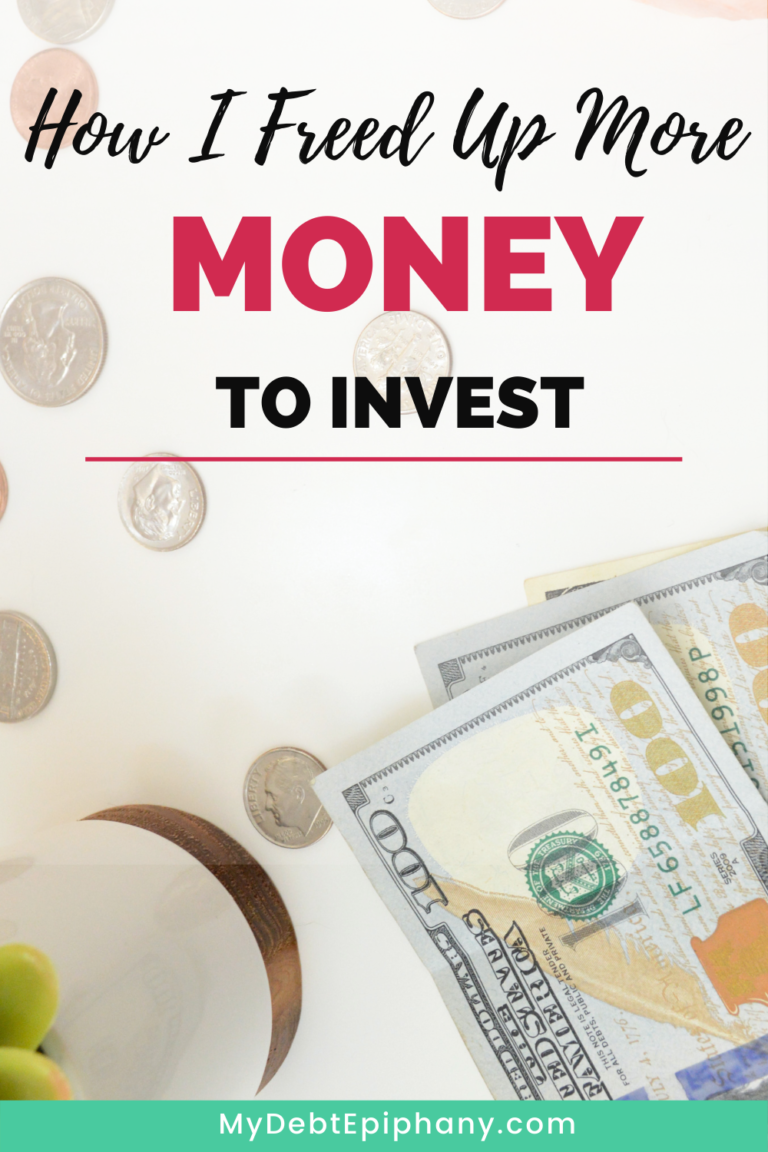How to Stop Investing In Stupid Things
Hey everyone! I’m settling back in from my vacation last week but I’ll be back with new content on Monday! Today, I have a guest post from Chad. Chad Zollinger is the editor of The Bottom Line and writer for The Mission on Medium. For work, he manages the Debt Relief and Tax Relief content at Best Company. He loves writing, loves watching Manchester United, and enjoys a good Seinfeld reference. He also loves to challenge random people to Rubik’s Cube duels.
Let’s set the record straight.
I am among the leading Bitcoin and financial experts in the world.
I’ve literally studied cryptocurrency for minutes on end (30+ minutes of studying).
I’ve invested over $17 in my life and lost none of it on return (I’ve nearly doubled my 2015 net worth of $700 in just three years).
I’ve read five entire articles (from start to finish) on Bitcoin and cryptocurrency. I know the words to use (Bitcoin, Litecoin, Crypto, Cyber, Finance, I, Am, An, Expert, On, Cryptocurrency) and exactly how much to enthuse to my friends and colleagues about the whole shebang.
Using my ultra-intuitive financial acumen, I have been able to discern that there has been some talk about Bitcoin recently on the Interwebs (the place where people go to find things on the web). And, as an expert, I simply can’t stand by and let us slip into disarray.
Now, it’s probably pretty obvious that I’m messing around, but am I the only person that has seen this type of attitude out there? These people are all over the place and we actually take advice from them. The words “I read an article once” are too often the beginning of a sales pitch from a friend. Expertise should be established by the words “I read 100 articles once.”
I tend to lose people right around this time, so I’ll start by pointing out the basics.
Table of Contents
The Basics
Let’s be real for a minute, I only joke about being a Bitcoin expert because most people are so serious about faking it. What is it about money that makes us risk it all with less thought than it takes to cook a turkey? Why do we fall for “all or nothing” gambles? Why do we even pretend to be experts before blindly jumping headlong into oncoming traffic in hopes that we’ll be hit by an armored vehicle full of cash and live to tell the tale?
While I may not actually be an expert on financial matters, I do feel like I know something about self-control. Though I do indulge in the occasional dirty Dr. Pepper,
I’m graduating from college with zero debt.
What I do know is that people tend to invest financially long before they invest thoughtfully. I’m beginning to see that self-control is the greater part of financial valor.
As business-oriented beings, we are grappling in the great struggle between our ambition and our sense of preservation. One part of us simply wants to survive, and another part of us wants to risk survival in order to thrive. A financially sound individual is one who takes control of these two human intuitions. A financially sound individual lets ambition drive his sense of preservation. A financially sound individual lets his sense of preservation calm ambition when it begins to leap without reason; when it begins to eye those cash-filled armored trucks.
No matter how much you want it, money usually doesn’t start pouring in until you learn to live without it. Can you imagine if you, being a millionaire, could somehow resist the temptation to spend?
Believe it or not, most successful men and women know exactly when to spend and when to save. They know what a good and bad investment is; they feel it in their gut. I think us normal people feel it too. The difference is that some of us don’t have the patience to listen to our gut instinct (we want money now or not at all). We fall prey to the hype, the hunger, and the desire for head-on collisions.
Our Hunger for Head-On Collisions
One example of humanity’s insatiable hunger for more is our recent escapade with Bitcoin. This one was difficult. I didn’t know what to think about it for the longest time. There were articles saying it was the new currency and there were experts saying Bitcoin wouldn’t last.
My ultimate conclusion was because Bitcoin was so hard to understand that it warranted caution before investing. I know it was hard for some of us, but here was my unsolicited advice:
Don’t invest in Bitcoin.
Not to rub it in, but from December 2017 to January 2018, Bitcoin went from $19,000 to $9,000. Though it’s back up to around $10,500, the chances are not good that it will ever get back to where it was.
Why did it crash? Why did we crash? Well, it’s because you walked out blindly onto a freeway hoping you’d find the armored car. You wanted that instant explosion of money. You dreamt of Benjamins, Grants, and Jacksons falling freely from the sky with a backdrop of flames and spectacle. You wanted that one moment that would change your life forever.
The truth is that what changes your life forever are the thoughtful decisions made every day (ugh, that’s so much harder). I hate hearing that type of thing and even now I hate saying it. It may be the hardest truth of all and we will have to deal with it.
So, with that tidbit on why we invest in stupid things, here are three ways to not invest in stupid things.
1. Seek Knowledge First
In general, it’s a good rule of thumb not to invest in something you don’t know anything about. Actually, I think I might feel a Warren Buffett quote coming:
“Risk comes from not knowing what you are doing.”—Warren Buffett
Believe it or not, but knowledge is valuable—extremely valuable. It’s even more valuable than money itself. Why? Because knowledge is the real money maker. We are too bamboozled by the tendency of most people to look to sources and then immediately consider themselves experts.
You should invest time, your most precious commodity, before investing your money. I do understand the speed at which some opportunities come and go. I am not blind to the fact that good investors are quick to spot good investments. But those investors do not reach that point without first having patiently and thoughtfully studied their market of interest. Time and knowledge equal an ability to invest thoughtfully.
2. Learn to Say No
We live in a culture of indulgence. Try counting the number of propositions that are made to you in one day. Just this morning, I’ve counted 35 different “sales proposals.” On the internet, there are discounts, offers, and incentives to buy clothes. You drive past billboards that promote useless products. You see commercials on TV for services that no one really needs. If you want to nurture an attitude of success, say no to unnecessary indulgences.
Here’s another piece of advice from my old pal Mr. Buffett, as I affectionately call him (our highly successful career paths have crossed a time or two, albeit in my dreams):
“The difference between successful people and really successful people is that really successful people say no to almost everything.”—Warren Buffett
Are we sort of getting it now? I can’t tell you how many times I say yes to stupid things. I shudder to think about how much I could have saved if I hadn’t eaten out at Cafe Rio three times a week for the past four years. Actually, I feel like I want to calculate that.
3. Earn to Give Back
So you want to be rich? That’s your first mistake. I know this sounds incredibly counter-intuitive, but untended desires often lead to thoughtlessness, rashness, and poor decision-making.
So, what is the solution?
I would suggest you derive your ambition, not from a desire to gain power over others, but instead from a desire to empower others.
Can you imagine if you were driven by a need to help others? For example, I am acquainted with Kurt Workman, CEO, and Co-Founder of Owlet, a sock that monitors babies’ hearts and oxygen levels. His desire to succeed was born from his need to help save babies’ lives in any way that he could.
This is the most realistic and virtuous path to success. In the end, success isn’t a dollar amount. Instead, success is the accumulation of your mental, emotional, and physical assets. Money, like education, is simply another tool that attracts opportunities for happiness.
Remember that ambition should be anchored by something personal, meaningful, and profound in your life (family, charity, social outreach, etc.). Remember that unbridled ambition can lead to unrivaled disaster.
Stop Worrying About Money and Regain Control

Join 5,000+ others to get access to free printables to help you manage your monthly bills, reduce expenses, pay off debt, and more. Receive just two emails per month with exclusive content to help you on your journey.





